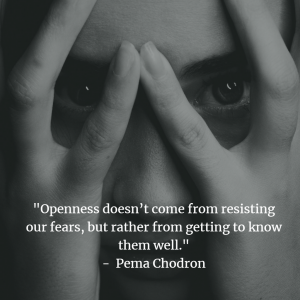Honesty Unveiled: Nurturing Self-Truth in Children for a Fulfilling Future

The foundation of honesty begins with introspection, the ability to look into the mirror and be truthful with oneself. As parents and guardians, we often grapple with the challenge of instilling honesty in our children, especially when societal expectations may encourage presenting a different front for the sake of social harmony. Yet, nurturing a child to be self-honest is crucial, fostering the courage to face the truth, even when uncomfortable. This foundation equips children with the power to impact their overall well-being, fostering self-awareness and understanding.
Self-honesty involves consistently aligning one’s words and actions with personal beliefs, even in the face of discomfort. It encourages children to be transparent about their thoughts, feelings, and actions, acknowledging limitations and confronting fears. For instance, a child dismissing their ability in math may be a form of self-deception, masking the need for more effort or seeking assistance.
Failure to cultivate self-honesty can lead to self-sabotaging behaviour, such as staying in unhealthy relationships or pursuing unfulfilling careers in future due to fear of facing the truth. Self-honesty empowers children to make choices aligned with their best interests, confront fears, and make informed decisions.
Understanding the reasons behind self-deception is crucial. Children may lie to themselves to escape consequences, manipulate feelings, or build protective walls. To nurture self-honesty, consider these approaches:
- Thoughts: Encourage positive thought processes, aligning with the principle from Philippians to focus on what is true, noble, right, pure, lovely, admirable, excellent, and praiseworthy. Help children observe and understand their thoughts, as external expressions stem from internal compasses because out of the abundance of the heart, the mouth speaks.
- Knowing What Is True: Differentiate absolute truth from relative truth with your child. Absolute truths are universally valid, while relative truths depend on individual perspectives. Teaching this crucial distinction prevents children from getting entangled in subjective viewpoints. For instance, consider the statement “The earth is round” – it is an absolute truth because it holds universally. Now, let us explore a relative truth: your child thinking Mars chocolate is the best. This is subjective, as friends might argue that KitKat is superior. By discussing these examples, you help your child grasp the concept that personal preferences, like favourite chocolates, are relative truths and can vary among individuals. Furthermore, guide your child to understand that relative truths can change over time. For instance, just because they enjoyed milkshakes in the past does not mean they won’t develop a liking for chocolate drinks today. This insight prevents your child from being stuck in the past and fosters adaptability to evolving perspectives and preferences.
- Be Themselves: Discourage the adoption of artificial profiles or personas, especially in the age of social media. Encourage authenticity, as being true to oneself fosters genuine pride and resilience against the pressures of conformity.
- Embrace Wholesome Acceptance: Guide children to accept reality without excuses or self-deception. Embrace the present for what it is, teaching them to acknowledge mistakes and learn from them, promoting personal growth.
In conclusion, as Neale Donald Walsch suggests, the power of being honest with oneself lies in recognising the freedom of choice. Encourage your child to understand the importance of embracing reality, as self-deceit only leads to a more challenging future. Ultimately, a child who can rely on their honesty will navigate life with authenticity, resilience, and the ability to shape a fulfilling future.




